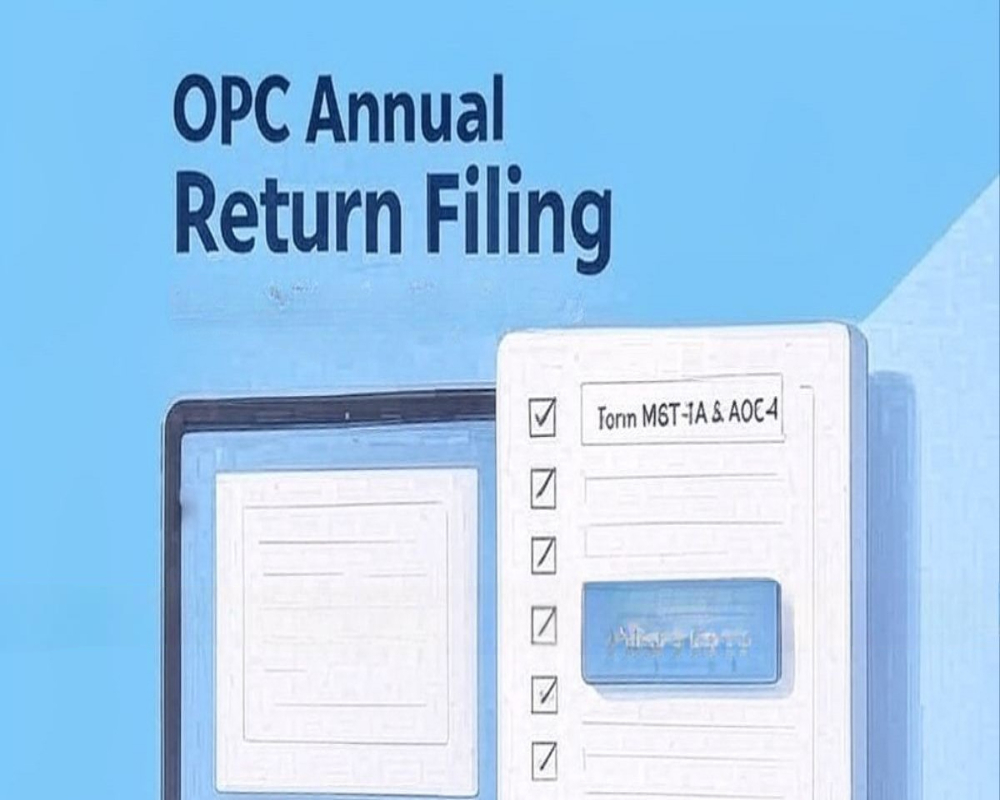Legal Requirement for Filing
- An OPC is required to file its annual return every financial year under the Companies Act, 2013.
- The return provides a summary of the company’s shareholding, structure, and governance.
- It is a mandatory compliance, even if the company has no active business or income.
- The purpose is to ensure that the Registrar of Companies (RoC) is updated with the company’s status.
- Filing the return timely helps maintain legal standing and active company status.
Applicable Forms and Timeline
- The OPC files its annual return using Form MGT-7A, which is a simplified version for small companies and OPCs.
- This form includes details of the member, director, share capital, and changes during the financial year.
- The return must be filed within 60 days from the date of the Annual General Meeting (AGM) or the end of the financial year (since OPCs are exempt from AGMs).
- Late filing attracts additional fees and penalties as per the rules.
- The return must be digitally signed by the director using a valid DSC.
Supporting Compliance Documents
- The annual return is filed along with the financial statements, submitted in Form AOC-4.
- The financial statements must be audited by a Chartered Accountant, even for small companies.
- These include the balance sheet, profit and loss account, and notes to accounts.
- Both forms together constitute the company’s annual compliance package.
- The auditor’s report is also attached to the financial documents.
Director’s Responsibility
- The sole director or appointed director of the OPC is legally responsible for ensuring compliance.
- All details provided in the forms must be accurate, verified, and updated.
- The director must ensure that the returns are filed within the prescribed time limits.
- Any change in company details or shareholding must be reflected correctly in the return.
- False declarations or omissions may attract penalties or prosecution under the Act.
RoC Review and Acknowledgment
- Once the annual return is submitted, the RoC records and acknowledges the filing.
- If there are discrepancies or missing documents, the RoC may issue notices for clarification or rectification.
- Filed returns become part of the public record, accessible through the MCA portal.
- Proper filing ensures regulatory transparency and good corporate standing.
- Failure to file may lead to fines, strike-off proceedings, or disqualification of the director.


0 Comments